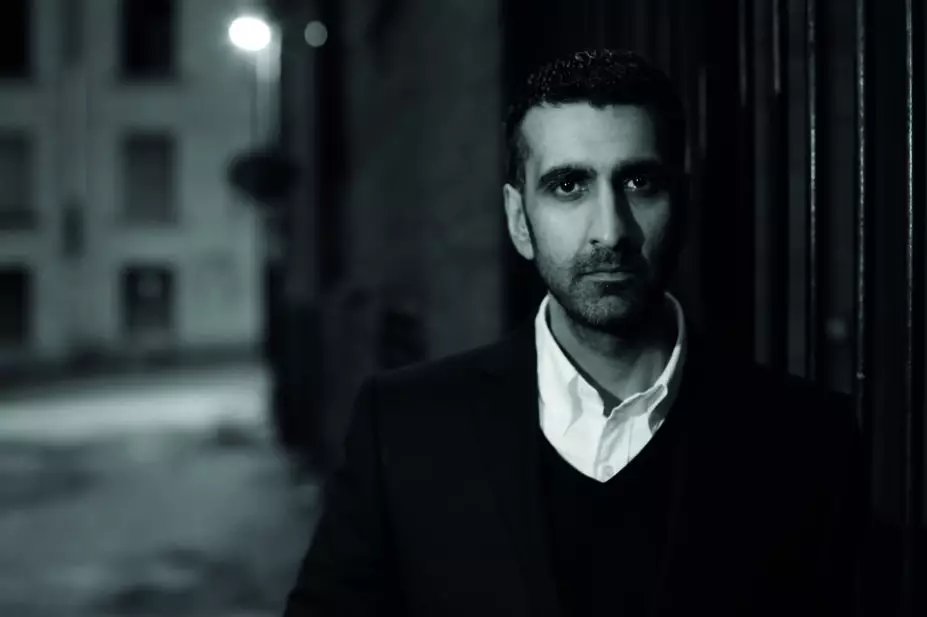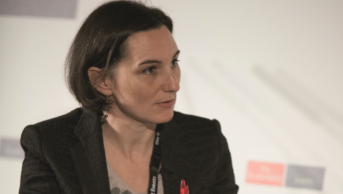
Courtesy of Amit Dhand
Amit Dhand is pharmacy manager at Headingley Pharmacy in Leeds and best-selling author of crime novels, Streets of Darkness and Girl Zero.
What is your pharmacy background?
I qualified from the University of Bradford in 2002, before moving to Essex to work as a hospital pharmacist. Two years later, I returned to Yorkshire, where I undertook several locum positions in Huddersfield and Leeds hospitals before making the transition to community pharmacy. I worked for LloydsPharmacy for five years before moving to Headingley Pharmacy, an independent 100-hour pharmacy within Headingley Medical Centre, and have been there since 2011.
How did you discover your passion for writing?
I grew up in a corner shop, which also doubled as a video-rental library where I would secretly watch thriller movies. One particular evening, I remember I chose to watch The Silence of the Lambs. Three quarters of the way through, I was too afraid to continue watching and turned it off, before confessing to my parents what I had done; I was too frightened to sleep alone! It was that weekend, on my usual weekly visit to Bradford Central Library, that I came across the book. I had no idea movies could be based on books and so I borrowed it. Where I had not managed to finish the movie, I did finish the book. I could not believe a novel could take me to such extremes of emotion: fear, exhilaration and excitement. I realised that I wanted to be a writer.
What is your debut novel Streets of Darkness about and what was your inspiration?
Streets of Darkness starts at 5am on the morning of the largest Asian festival in England. A high-profile murder puts the festival at risk of descending into anarchy. Detective inspector Harry Virdee is suspended from work, but is tasked with finding the murderer before the festival starts. He has only twelve hours to save his job, his city and ultimately, his own life.
At the time of writing, there were no best selling crime-fiction novels written by Asian authors which were set in the UK and published by one of the ‘big five’ publishers. There were no Asian fictional heroes who were able to transcend their skin colour and become a brand within their own right based solely on their characters. I aimed to change that narrative by explosively placing protagonist, Harry (Hardeep) Virdee, into mainstream media and I believe that the television adaptation of the book will prove to be a defining moment for Asians in media.
One theme which resonates with me and features in the novels is inter-faith racism. Harry is Sikh and in an inter-faith relationship with his Muslim wife, Saima. Both are disowned by their families for crossing a religious divide and the novel explores their struggle to overcome this. Racism is not simply ‘colour-on-colour’, it exists within communities and we need to start there if we want to stamp it out. Enter Harry and Saima Virdee.
Streets of Darkness is now set to become a television series which you will be writing. How does that feel and what does that mean for your pharmacy career?
I am trying my hand at writing the script and we are currently in development with a UK broadcaster, so this is an exciting time. To bring a unique crime series to screen is something that I have dreamed of and there is a stellar team working hard to bring this to fruition. There was a lot of competition for the television rights but having producer Paul Trijbits and the team at Filmwave on board, together with my agent Simon Trewin at William Morris Endeavour, means that we have the best in the industry working collectively on a television series that aims to create a new brand of crime-fiction. However, I will continue to work as a pharmacist because I enjoy patient contact and the level of human interaction in a pharmacy is unparalleled.
How do you balance your role as a pharmacist with your passion for writing?
I write during the evening, and the reason I continue to work full-time as a pharmacist is because I love my job and I am passionate about healthcare. The pharmacy environment has changed dramatically over the past fifteen years — where more is demanded for less and there is a much greater emphasis on integrating pharmacy within the wider healthcare sector. I spend a lot of time speaking with patients and interacting with other healthcare professionals. Unfortunately, tending to bureaucratic tasks also requires a significant amount of time as the role and expanse of what pharmacists are tasked with seems to continually increase. While every area of the NHS struggles with budgets, the funding cuts faced by community pharmacies in England is upsetting at a time when pharmacists already do far more than anyone realises. ‘More for less’ is an accepted strategy but when you also cut the funding in such dramatic ways, it feels unachievable.
How do you feel pharmacists are represented in the media, books, film and television more generally?
Pharmacists are represented poorly in all aspects of media. There is little understanding of the complexities of our roles and the perception that pharmacists only ‘stick labels on boxes’ still exists. In my opinion, there is a lot of potential for pharmacists to contribute greatly to alleviating many of the pressures within the NHS. Pharmacies are accessible at all times, often seven days a week. Implementation of national minor-ailments schemes would remove a huge burden from GP practices.
What are your future career aspirations? What is your overall career goal and how do you intend to get there?
I aim to see through the television adaptation of Streets of Darkness and Girl Zero and continue to champion my brand of crime fiction. My career goal as a pharmacist would be to utilise my abilities as a writer and soon-to-be screenwriter to fully showcase just how uniquely placed pharmacists are to change the narrative with regards to community healthcare, and look at the industry from a different angle with a view to change. That does not mean an ‘Amazonian model’ of click and collect. It is fairly obvious that to date, the pharmacy sector whimpers rather than roars about what it is capable of. People create change, not process.


